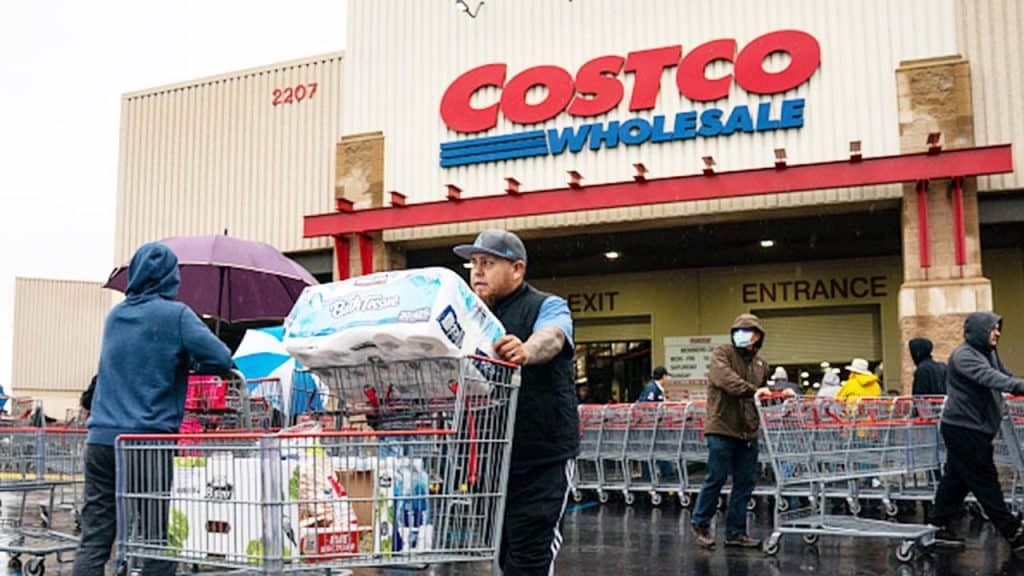
Costco Wholesale Corp.’s monthly sales fell for the first time since the recession, as stay-at home orders and social-distancing restrictions reduced shopper traffic and some parts of stores offered limited service.
Comparable sales, those from stores and digital channels operating for at least 12 months, fell 0.5%, excluding the impact of gasoline and currency fluctuations, for the four weeks ended May 3. Including those items, sales fell 4.7% as low gas prices further pushed sales down.
“April sales were negatively impacted by Covid-19,” said the company, one of the few retailers that still reports monthly sales. Costco cited stay-at-home orders, social-distancing restrictions and some mandatory closures for the lower traffic and sales, as well as scaled-back service in areas such as the food court and optical department.
Collectively, the negative impact of Covid-19 and low gas prices reduced comparable sales by around 12%, the company said. Excluding the impact of gas prices, optical, travel, the food court, hearing aids, photo and currency fluctuations, sales rose 8.6%.
The April results marked the first monthly decline since July 2009.
Many retailers deemed nonessential by local governments have closed and furloughed workers. For those deemed essential, staying open has brought its own set of challenges.
Open retailers experienced a massive sales surge early in the U.S. outbreak, as shoppers flocked to stores to stock up on cleaning supplies and food in late February and early March.
Walmart Inc. store sales rose nearly 20% in March, The Wall Street Journal reported last month.
Target Corp. sales rose 20% in stores and digital channels during the first three weeks of March. But that growth slowed in April, up 5% at Target in the first three weeks of the month as more shoppers stayed home, the company said. Target has also said that profits this year will be lower than previously expected due to the higher percentage of online sales and investments related to the new coronavirus, such has added labor and cleaning.
Open retailers experienced a massive sales surge early in the U.S. outbreak, as shoppers flocked to stores to stock up on cleaning supplies and food in late February and early March.
Walmart Inc. store sales rose nearly 20% in March, The Wall Street Journal reported last month.
Target Corp. sales rose 20% in stores and digital channels during the first three weeks of March. But that growth slowed in April, up 5% at Target in the first three weeks of the month as more shoppers stayed home, the company said. Target has also said that profits this year will be lower than previously expected due to the higher percentage of online sales and investments related to the new coronavirus, such has added labor and cleaning.
Retailers have also struggled to staff stores. As of last month, 10% of Walmart’s U.S. workers, or about 150,000 people, were out on coronavirus-related leave, the Journal said. Walmart has hired around 200,000 additional workers to meet sales demands, the company said last week.
Costco said comparable sales rose 12.1% in February, boosted by coronavirus-fueled panic buying. In March, that growth cooled slightly, with sales slowing during the second half of the month as the company reduced store hours and restricted sales of certain products deemed nonessential by some regulators, the company said last month. March comparable sales rose 9.6%.
While coronavirus hit sales in April, “we did see week-to-week improvement in sales and traffic for all four weeks,” the company said on a prerecorded call Wednesday. Some Costco stores are returning to regular opening hours as more states open and people return to work, a spokesman said last week.
Over the past month shoppers continued to favor food and household goods, while buying less luggage, apparel and jewelry, the company said.